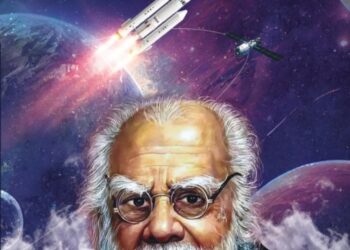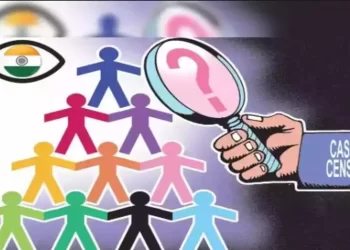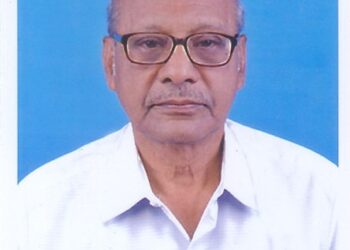G. Balachandran IAS (Retd.)
Former Chief Secretary of West Bengal
(The following are the excerpts of the felicitation address delivered by Respectful G.Balachandran IAS (Retd.) on the occasion of honouring Asiriyar Dr. K.Veeramani and Mr. Siddharth Varadarajan with Quaid-E-Millath Award for Probity in Politics / Public Life by the Quaid-E-Millath Educational and Social Trust on 31st January 2023 at Chennai.)
Respectful organisers, dignitaries, the recipients of the award for probity – Asiriyar K.Veeramani and Siddharth Varadarajan – a very good morning to all of you. I am glad, I am given an opportunity to speak felicitating them. Let me begin with a few words about Siddharth of ‘The Wire’. All of us know we would feel a shock when we touch a live wire. But when some one reads ‘The Wire’, somebody else somewhere is shocked. He is being honoured for that special feature. He knows about all the hurdles one has to face in protecting democracy. But he continues his efforts tirelessly. He is being rightly honoured today for his services.
The eminent French writer Albert Camus once said, “Democracy is not a rule of the majority; it is the protection of the minority.” He meant to say that it is our responsibility to safeguard the rights of all the downtrodden people, for whom we fought and achieved freedom. It is a difficult task but Siddharth and his team have resolved to accomplish it.
I cannot talk about Asiriyar Veeramani without talking about democracy and societal freedom. I recall Abraham Lincoln’s speech at Gettysburg in 1863. Addressing the soldiers he said, “87 years ago our forefathers brought forth on this continent, a new nation conceived in liberty and dedicated to the proposition that all men are created equal. We are now engaged in a great civil war. A nation so conceived and so dedicated can endure for long …………”
Lincoln had found out the basic problem that men who were created were not treated equal. Scholars all over the world analysed what Lincoln said comparing it with the state of affairs in their countries. In many countries, the minority had to exist under the domination of the majority. Hence people examined the social and political life of their own country.
Long before Lincoln’s address at Gettysburg, our great sage Thiruvalluvar had said through one of his famous couplets that all human beings are equal by birth.
Why did problems crop up before and after Independence? What are the ways to solve them? Two stalwarts struggled lifelong probing into all the burning problems. They were Dr. Ambedkar and Thanthai Periyar. Explaining why we need social justice, Ambedkar said,
“A just society is that in which ascending sense of reverence and descending sense of contempt are dissolved into the creation of a compassionate society. It has been examined by different people from different view points within the limits of the time, place and circumstances they lived in.”
Ambedkar viewed Social Justice in very concrete terms. He said further, “Social justice is one of the dimensions of the concept of justice that stands for organisation of society, based on the principles of equality, liberty and fraternity.” Ambedkar insisted upon a human social condition that ensures free and fair development of all human beings. He laid great emphasis on the principle of equality – both social and economic and on fraternity with a view to create free and fair development of all people.
What Ambedkar said after the framing of the Constitution, is of great importance. He said, “I have completed my work. I know the sun would rise tomorrow as usual. But the sun rise of economic and social liberty will take some more time. We still have to go a long way. Political freedom is not enough. We have to continue our fight tirelessly.”
Periyar was not seen by the world as a theoretician like Ambedkar because his works were not deeply read by researchers and reviewers. When I was invited as an Advisory Officer to the World Tamil Forum Conference three years back in Chicago, a foreign student who was a research scholar studying Periyar’s theories and practice asked me why he could not read much about Periyar in Indian newspapers. He wanted to know why the print media avoided articles about Periyar’s speeches, thought and policies. I replied thus: “My dear boy, find out who owned most of the leading newspapers. Find out who published them. You would then understand why not much was written about Periyar.”
Many have travelled along with Periyar. Asiriyar Veeramani is one of them. He has always been his true disciple. He has been rightly honoured today by an award for probity in political and public life. It is noteworthy that he won a gold medal in Annamalai University when he was a young student. That was for his academic Excellence. Today’s Award is for his unparalleled public services, integrity and unflinching resolve.
When I was the President of Delhi Tamil Sangam, I created “Periyar Endowment”. Asiriyar was the first stalwart who was invited to deliver the endowment lecture at a special event. Today he spoke for an hour. I remember even on that particular day he spoke for an hour tirelessly. Only when he turned back and looked at us behind him, we realised that he had spoken for an hour. His speech was so mesmerising. It proved his oratory skills.
After his student life, Asiriyar Veeramani could have become an IAS or IPS officer if he had so desired. He could have entered political world and risen as not only a minister but even as the chief minister. But like his leader and master Periyar, who refused to accept the post of CM when it was offered, Asiriyar also ignored posts and positions, name and fame, wealth and property and dedicated himself to public services and social reformation, following in the footprints of Periyar.
Asiriyar Veeramani started his life as a follower of Periyar but today Tamil Nadu is following Asiriyar. His unequalled services have elevated him to an esteemed level and glorious heights. He never craved for anything for his personal pleasure. He has spent nearly 8 decades of his life in public service. I would say that he is a living legend. His existence amidst us strengthens our hope and confidence in the dawn of a new era.
Hundreds of books have so far been published on democracy and social justice but the eminent poet Bharatiyar said about it in just two lines thus: “We know the nation where we live. The nation where we live is ours.” He implied that we should rule our country – not others. The country belongs only to us – nobody else. That is democracy. That is social justice in my view. The need for social justice is felt by us now more than ever. Today in our country, without openly declaring Emergency, the laws of Emergency are being implemented. Whether it is legal or illegal, we find rulers behaving according to their whims and fancies. We find absolute autocracy and dictatorship stifling us all. We were guaranteed fundamental rights by the Constitution but today attempts are made to shake and dismantle its foundation itself. The work of destruction is fast. Silently and surreptitiously, everything is going on against the Constitution. The impact of this has not been realised by most of our people. At this juncture, Asiriyar’s services are our comfort among discomforts. He continues to struggle for us and that motivates us all to strengthen his hands.
Long ago we had to fight for social justice in democracy. Today we are forced to fight for democracy itself. Since 2014, this is the sad state of affairs in our country. You can infer what I imply. Our fight for democratic rights, social, political and economic freedom should go on as usual. All hope is not yet lost. People like Siddharth are striving for social justice. Asiriyar Veeramani has always been a source of inspiration for dynamic young journalists like Siddharth. I am told, 8 to 9 million people are following Siddharth and his ‘The Wire’ online. It would surely grow in leaps and bounds.
People should realise why we need to protect our republic, our democracy and our rights. But the problem is that people realise problems only when they are personally affected. For example, when there was an election after the Emergency, the entire North India cast votes against the Congress but South India voted for the Congress. The reason lay in the way our people looked at Emergency. South India was peaceful in many respects. But in the North, under the pretext of implementing family planning, a particular sect of people were being harassed. Their buildings were demolished. Their basic rights were denied. On flimsy grounds people were being arrested and imprisoned. The people who were affected fought against the unruly system. What I mean to say is that our people should imbibe the spirit of brotherhood and collectively fight against social injustice. That is truly unity in diversity. This inclusiveness is the need of the hour.
I would like to conclude my speech by reiterating that we need the services of stalwarts like Asiriyar and journalists like Siddharth, who are custodians of social justice. My hearty congratulations on the honour conferred on them today. I feel we have witnessed a truly historic event. I wish Asiriyar a very long life with pristine health. Respectful Asiriyar, my dear Siddharth, we assure you, we are behind you like an army. We are prepared even to be before you like a protective shield. Thank you!









